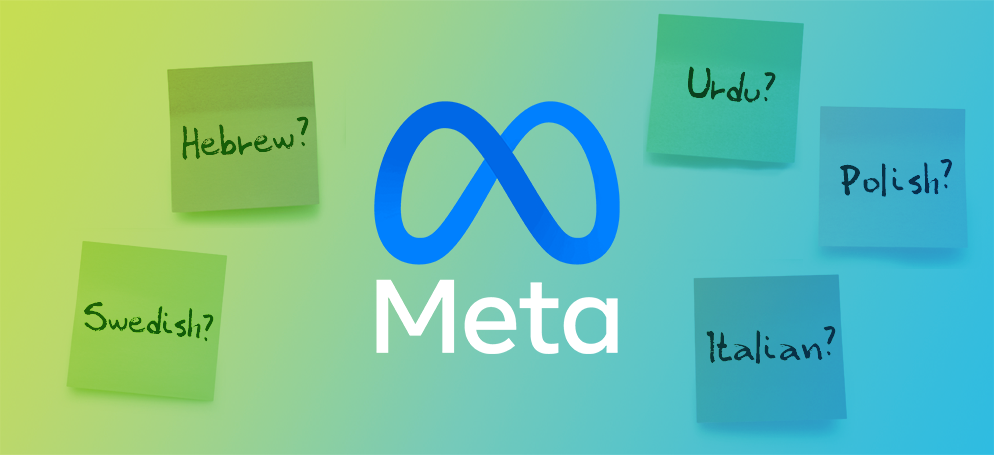
Facebook’s rebrand: A lesson in how words mean different things around the world
Facebook recently announced that it was rebranding as Meta – but quickly ran into difficulty on social media as people pointed out its meaning in other languages.
For example, in Polish, ‘meta’ refers to a place where alcohol is sold illegally, or else a hideout for criminals – not the connotation Facebook was hoping for.
In Hebrew, ‘meta’ sounds exactly like the word for dead – (מתה) – leading to much ridicule in Israel especially. ZAKA, the Israeli emergency service which collects the deceased, jokingly tweeted in response to Facebook, “Don’t worry, we’re on it”.
In Italy, an old-fashioned meaning of ‘meta’ which is sometimes still used in agriculture is pyramid-shaped piles of straw, hay and manure rising in the fields. It can also refer to the excrement of a large animal, emitted all at once.
In Urdu, the official language of Pakistan, ‘meta’ means to delete – awkward, given that Facebook reportedly lost 15 million users between 2017 and 2019.
In Swedish, ‘meta’ has a fishier meaning, since it can refer to fish – not a parallel Facebook would have had in mind when picking its new name.
At the company’s annual Connect conference, Mark Zuckerberg told attendees, “Right now, our brand is so tightly linked to one product that it can’t possibly represent everything that we’re doing today, let alone in the future. Over time, I hope that we are seen as a metaverse company, and I want to anchor our work and identity on what we’re building toward.”
As unforgiving as ever, the internet was quick to point out that the word ‘metaverse’ was first coined in Neal Stephenson’s 1992 dystopian sci-fi book where the population uses virtual reality as a form of escapism, only for that to become a mess as well…
There’s a long history of brands straying into difficulty by using words and phrases that have unforeseen meanings in different cultures around the world. Oban’s network of LIMEs – Local In-Market Experts – help brands stay ahead by properly understanding the linguistic and cultural nuances of their target markets. To find out how, please get in touch.
Oban International is the digital marketing agency specialising in international expansion. Our LIME (Local In-Market Expert) Network provides up to date cultural input and insights from over 80 markets around the world, helping clients realise the best marketing opportunities and avoid the costliest mistakes.